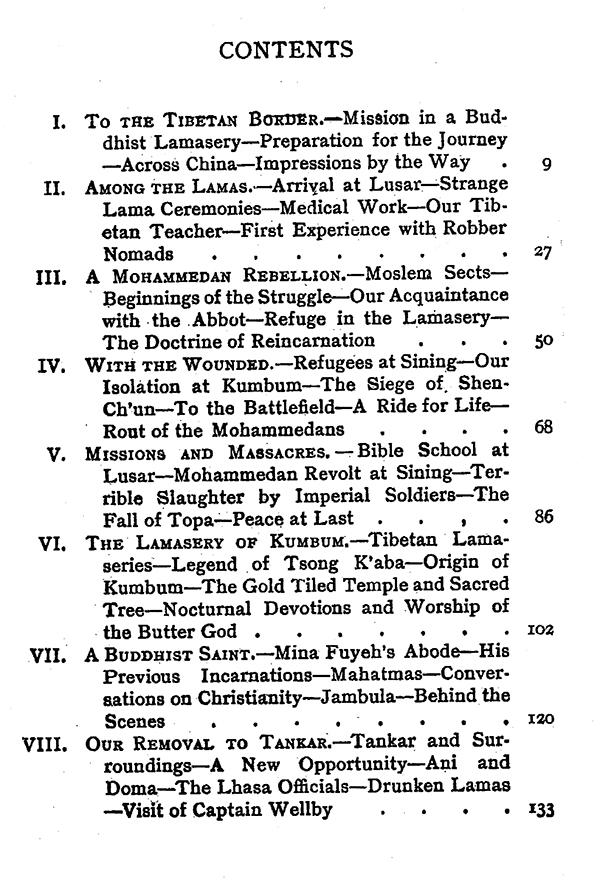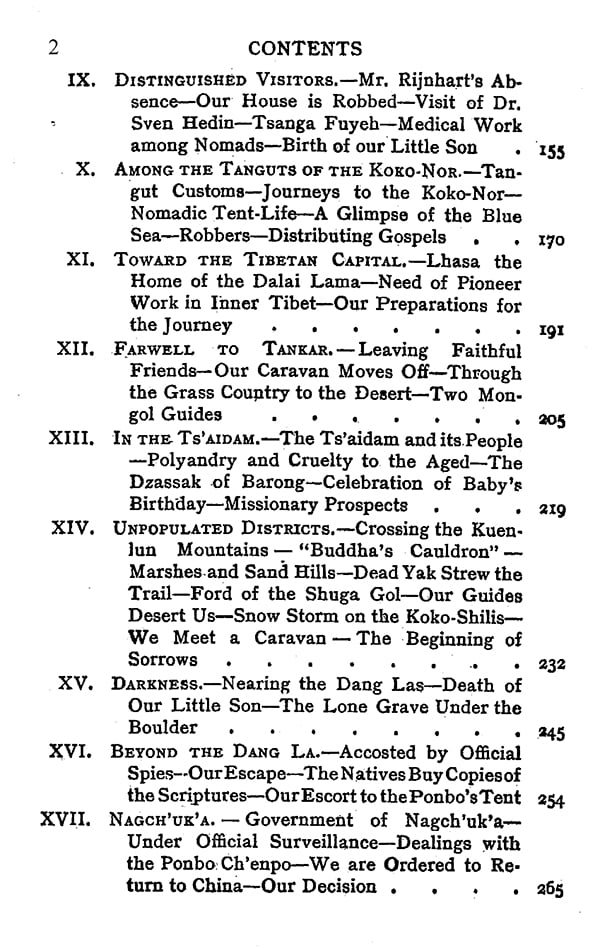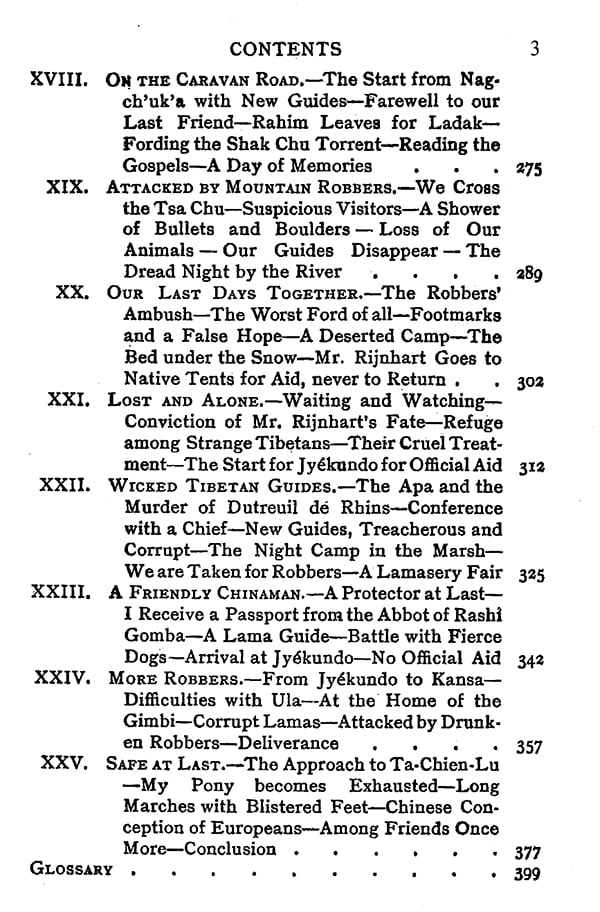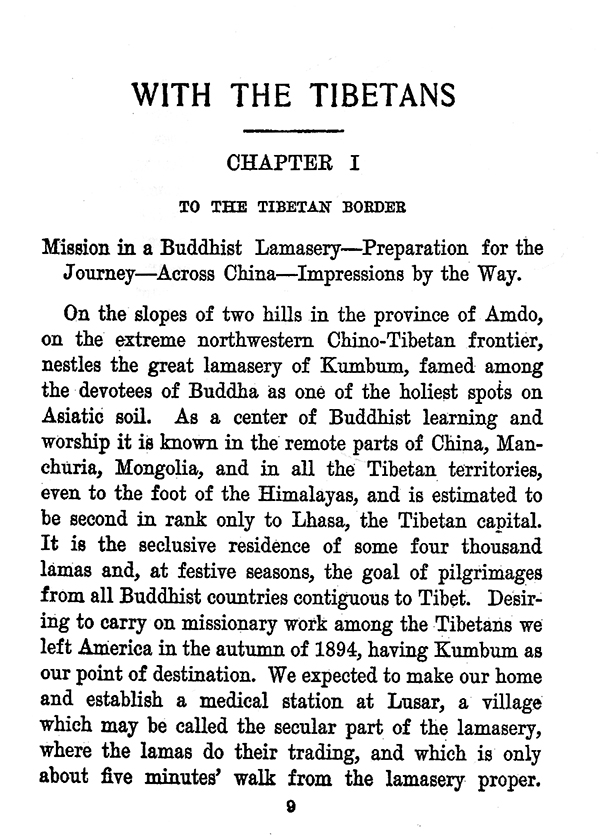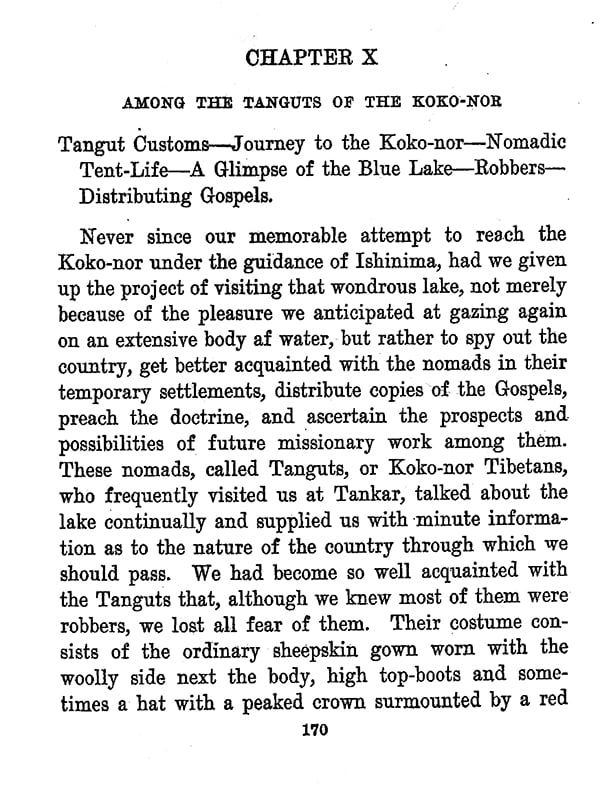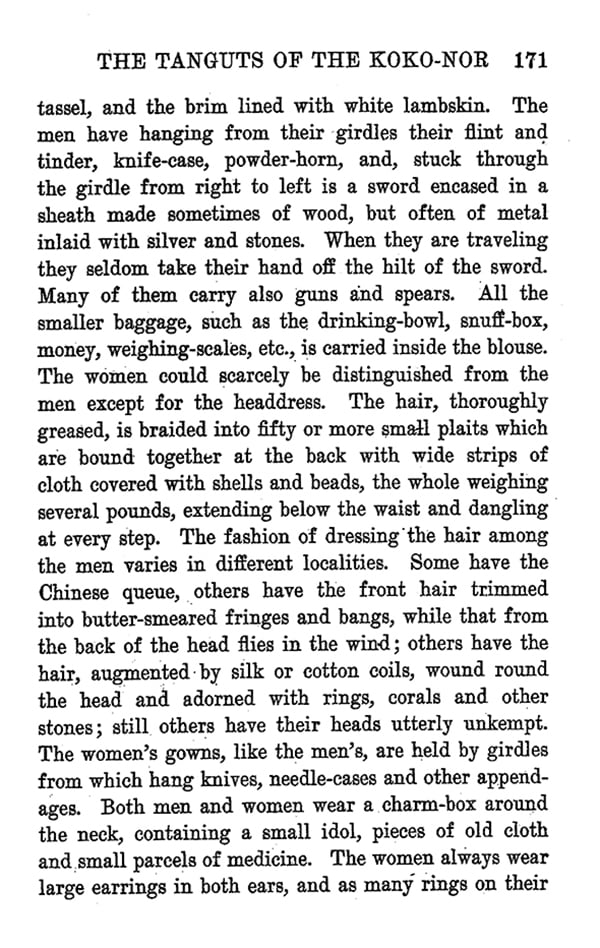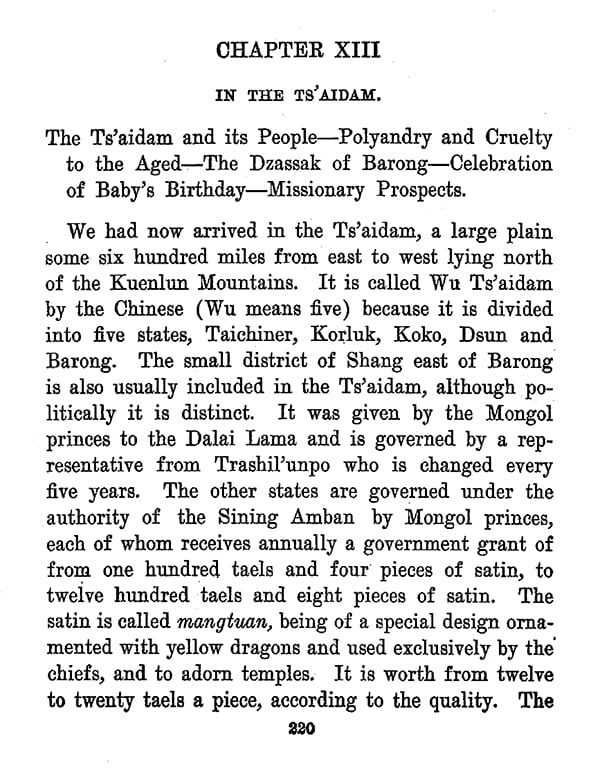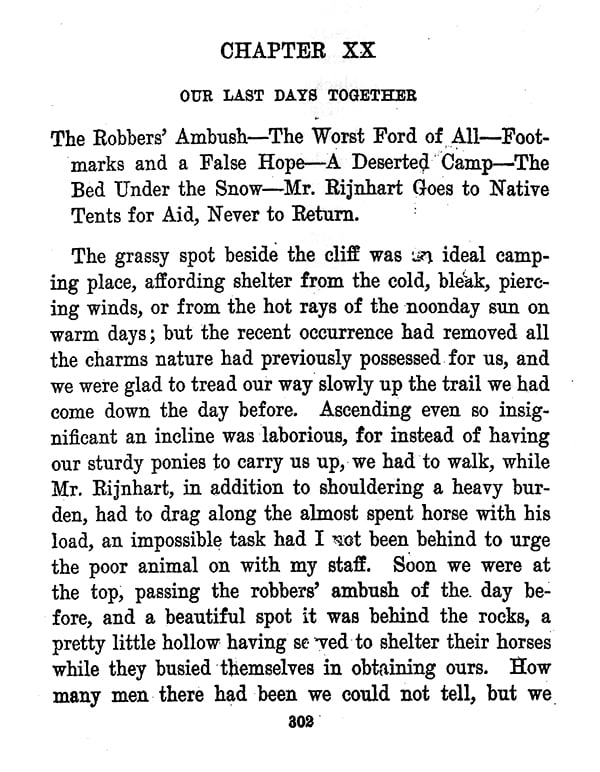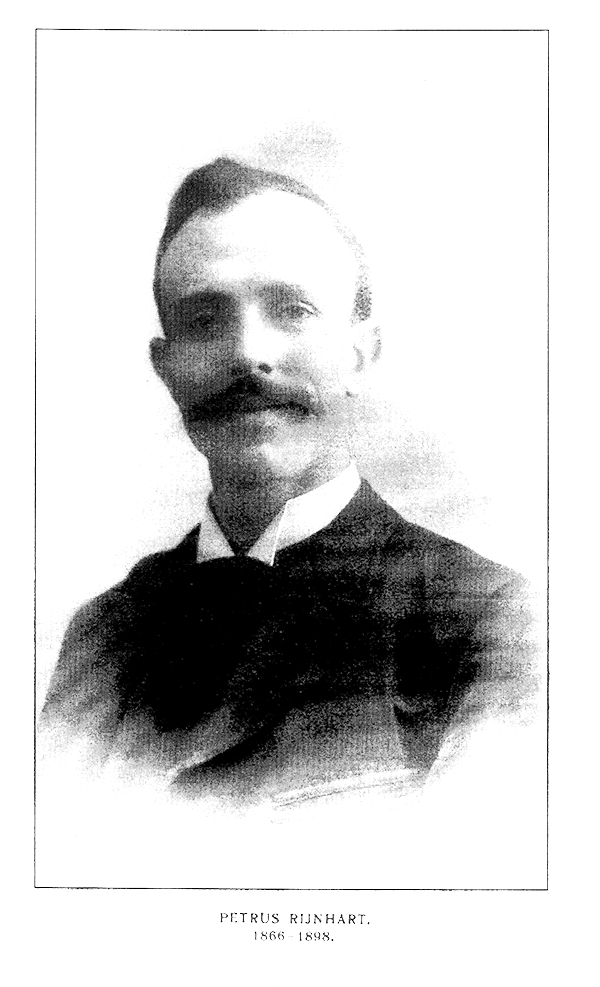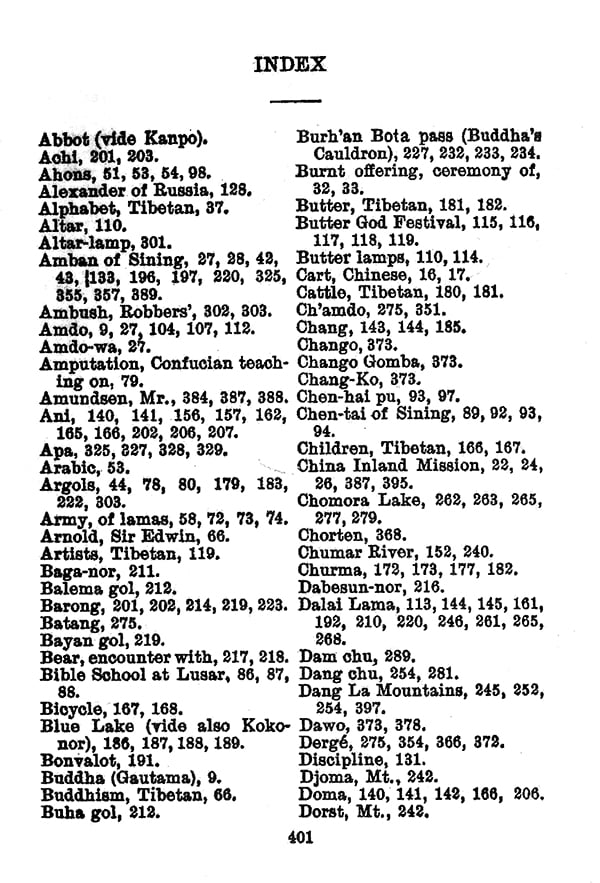
With the Tibetans in Tent and Temple (Narrative of Four Years' Residence on the Tibetan Borders, and of a Journey into the Far Interior)
Book Specification
| Item Code: | NAZ184 |
| Author: | Susie Carson Rijnhart |
| Publisher: | Manohar Publishers and Distributors |
| Language: | English |
| Edition: | 2020 |
| ISBN: | 9789390035519 |
| Pages: | 446 (13 B/W Illustrations) |
| Cover: | HARDCOVER |
| Other Details | 8.80 X 6.80 inch |
| Weight | 600 gm |
Book Description
This is an account of the arduous journey undertaken by the author and her husband Petrus Rijnhart, to Tibet between the years 1895 to 1899 with the idea of propagating the Gospel among the Tibetans. Sailing from the Pacific coast of Canada they reached Shanghai, from there they travelled to Hankow by steamer up the Yangste River and then by houseboat up the Han as far as Fancheng. Remainder of the journey was by cart and mule to Nagchuk,150 miles from Lhasa. The account is rich in detail and paints a lively picture of the people, their customs, beliefs, local temples and the laity.
Susie Carson Rijnhart (1868-1908) was a medical doctor from Canada. After her marriage to a Christian missionary Petrus Rijnhart, they departed for China to reach Lhasa to do evangenical work there. However after the tragic death of her husband she went back to Canada. In 1902 she returned to China to work for the Foreign Christian Missionary Society before returning to Canada in 1907.
In the following pages I have attempted to narrate briefly the events of four years' residence and travel among the Tibetans (1895-1899). The work does not aim at literary finish, for it has been written under the stress of many public engagements. It is sent forth in response to requests and suggestions received from friends in all parts of the United States and Canada.
If I may succeed in perpetuating and deepening the widespread interest in the evangelization of Tibet, already aroused by the press and platform accounts of the missionary pioneering herein de-scribed, I shall be glad. To this end I have incorporated in the narrative as many data concerning the customs, beliefs and social conditions of the Tibetans as space would allow. My close contact with the people during four years has enabled me to speak with confidence on these points, even when I have found myself differing from great travelers who, because of their brief sojourn and rapid progress, necessarily received some false impressions. The map accompanying the book shows the route of the last journey undertaken in 1898 by my husband, myself and our little son, and of which I am the sole survivor. Leaving Tankar on the northwestern frontier of Chinese or Outer Tibet, crossing the Ts'aidam Desert, the Kuenlun and Dang La Mountains, we entered the Lhasa district of Inner Tibet, reaching Nagch'uk'a, a town about one hundred and fifty miles from the capital. In describing this journey, such portions of Mr. Rijnhart's diary as I was able to preserve, and also his accurate geographical notes, have been of inestimable value to me.
**Contents and Sample Pages**THE object of a work of this description is apparent, i. e., it obviates the necessity of using a dictionary, and moreover the entire "Gulistan" (as wanted for the examination) can now be studied without the aid of a Moonshee. A student commencing the study of any " foreign language" has to use his judgment when referring to a dictionary, and is of course liable to .select the wrong meaning. By having this "Analysis," he finds that the exact meaning of the word (to suit the very passage he is translating,) stands the first in the vocabulary, and if he wants also the general meanings, they immediately follow in succession. It is evident, therefore, if he pays attention, that he can acquire far more than a " smattering" of the language, as he has ample opportunity of discovering the full force of each word, in every position that it occurs. For instance, if he refers to a dictionary, he probably finds that the meaning of a particular word stands last, and that in the analysis it is brought and placed first, and so on, &c. From the above, therefore, much time is saved, and such a book, almost entirely, prevents the possibility of mistakes on the part of the student. In preparing this "Analysis," it has been my humble endeavour to re-translate here and there some of Saikli Sady's inimitable and elegant similie sin such a manner as to elucidate, as far as possible, their covert meanings, and by a simple exposition of the ambiguous passages, I have attempted to show the depth and beauty of thought of the said Persian author, on whose transcendent abilities and lofty powers of imagination, (in my opinion,) sufficient commendation has not been bestowed. In the preface of Charles Rann Kennedy's able translation of the " Olynthiac and other public orations of Demosthenes," the following will be found, and such will also better express my reasons for revising Gladwin's translation :-
" Brevity and simplicity of style, together with the choice
"of apt and forcible words are the most essential elements
" of a good translation.
" The primary object of a good translation is that it may " be read with pleasure, or at least without difficulty, by
"your countrymen; and, secondly to this, is the assisting of
" the student in his perusal of the original. It is true for
" these purposes a certain degree of closeness is necessary.
" Whilst it is the translator's duty to produce (if possible)
" such a work as, placed side by side with the original,
" shall be in point of style and composition not unworthy
" of it, he must be sure to preserve all needful accuracy in
" regard to the sense and meaning,
**Contents and Sample Pages**